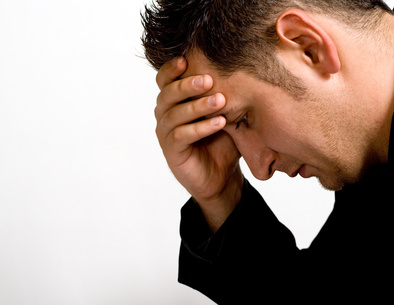Depression

Depression can make you feel alone. While depression can affect anyone, its effect may vary depending on your age and gender. It is predicted that 26% of Americans will have it during their lifetime.
Everyone goes through times when they are a little down, but being down is different than having depression. Depression has physical symptoms, which includes fatigue, inability to concentrate, moodiness, and a loss of interest in things.
Women are almost twice as likely to become depressed as men. The higher risk may be due partly to hormonal changes brought on by puberty, menstruation, menopause, and pregnancy.
Although the risk of depression for men is lower, men are more likely to go undiagnosed and less likely to seek help. They may show the typical symptoms of depression but are more likely to be angry and hostile or to mask their condition with alcohol or drug abuse. Suicide is an especially serious risk for men with depression, who are four times more likely than women to kill themselves.
Elderly people may lose loved ones and have to adjust to living alone. They may become physically ill and unable to be as active as they once were. These changes can all contribute to depression. Loved ones may attribute the signs of depression to the normal results of aging, and many older people are reluctant to talk about their symptoms. As a result, older people may not receive treatment for their depression.
Major depressive disorder, commonly referred to as “depression,” can severely disrupt your life, affecting your appetite, sleep, work, and relationships.
Depression Symptoms
The symptoms that help a doctor identify depression include:
Hypnosis for Depression
Hypnosis can also be an excellent complement to antidepressant or non-medication based therapies. Many people experience depression, but your feelings and experiences should be treated uniquely. With hypnotherapy, you can address your personal negative thought patterns and hopefully replace your depression with joy and fulfillment. Find your true self within.
Self-hypnosis can be a complement to any hypnosis performed by a therapist, and the benefit is that it can be performed in the comfort of your home. There are books and tapes available to teach you self-hypnosis techniques, or a hypnotherapist may also teach you ways to perform self-hypnosis. Self-hypnosis is a way of encouraging a similar trance-like state that you experience in a formal session facilitated by a hypnotherapist. The key difference is that it is not a hypnotherapist who provides suggestions for positive change but you who eliminates negative thought patterns and replaces them with positive ones. In addition, alternative therapies such as hypnosis can be helpful because they allow a person to experience a greater sense of control over his or her depression and health.
Medication, as prescribed by doctors, is not the answer to get to the root of the symptoms but merely a suppressant. This isn’t to say that medications don’t work or are not necessary, but they work for as long as you are taking them.
If you are experiencing any or several of these symptoms, you should talk to your doctor about whether you are suffering from depression.
If you are in an immediate serious crisis, please contact your doctor or go to your local hospital or emergency room. Dysthymia is another mood disorder. People who have it may feel mildly depressed on most days over a period of at least two years.
They have many symptoms resembling major depression, but with less severity. Symptoms of depression may surface with other mood disorders. They include seasonal major depression (also known as seasonal affective disorder), postpartum depression, and bipolar disorder.
Seasonal Affective Disorder has symptoms that are seen with any major depressive episode. It is the recurrence of the symptoms during certain seasons that is the hallmark of this type of depression.
Postpartum Depression is a type of depression that can occur in women who have recently given birth. It typically occurs in the first few months after delivery, but can happen within the first year after giving birth. The symptoms are those seen with any major depressive episode. Often, postpartum depression interferes with the mother’s ability to bond with her newborn. It is very important to seek help if you are experiencing postpartum depression. Postpartum depression is different from the “Baby Blues” which tend to occur the first few days after delivery and resolve spontaneously.
Ask Yourself
- What am I doing to help myself?
- What part of my unhappiness am I not taking responsibility for?
- Do I want help to recover and feel happy?
- Am I ready to make the change to heal and become healthier?
We can help you manage depression through Hypnotherapy
Complimentary ConsultationWhat Client’s Say
I cannot say enough about the level of expertise and compassion I’ve received from Liza Boubari. I have visited this little “bungalow of healing” many times, and it really is such a valuable resource for anyone who is stressed, confused, suffering and in need of support and direction. Liza goes above and beyond with her clients–the concern she has is genuine. Liza is a tremendous hypnotherapist, helping you to realize your self-worth and access your abilities. She brings such light into her clients’ lives
Just a note to let you know how happy I am for the help you provided my son. Do you remember how depressed he was before you helped him? I still believe you were God sent to us at the time we needed it the most.” You are on top of my referrals list!
I just wanted to thank you for all the work that you put in to helping me through this very difficult school year. I just wanted to let you know how much I appreciate your work and that I will never forget all that you have done. I am sure to refer patients to you over the years. Thank you again!
